(Le Mars) — Attendees of the Le Mars Chamber of Commerce Agri-business luncheon held Wednesday were informed about the expansion plans for the CF Industries fertilizer plant located at Port Neal near Sergeant Bluff. Nick DeRoos is the General Manager for the fertilizer facility. He says in 2005 CF Industries went public and in 2010 it acquired the former Terra Industries, and in November of 2012 CF Industries announced its expansion plans.
Listen to
{audio} images/stories/mp3/March 2015/DeRose1.mp3{/audio}
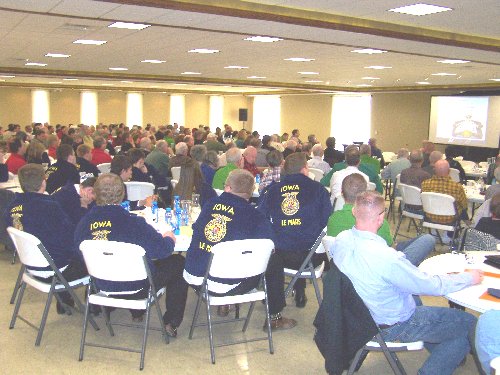
DeRoos says there were many reasons why CF Industries chose the Port Neal site for its two billion dollar expansion project. He says natural gas in North America is priced lower, and it sits within its prime marketing region.
Listen to
{audio} images/stories/mp3/March 2015/DeRose2.MP3{/audio}
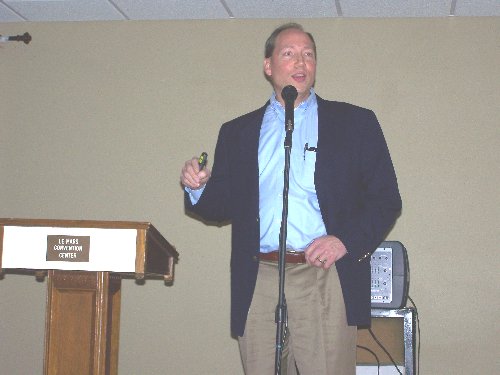
The CF Industries official says the fertilizer facility will hire several hundred people as it expands its operations.
Listen to
{audio} images/stories/mp3/March 2015/DeRose3.MP3{/audio}
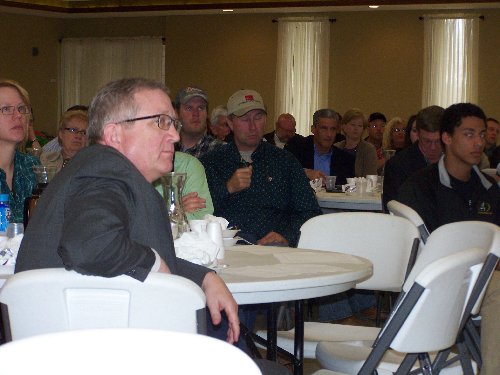
He says a permanent workforce for the new fertilizer plant will increase from 125 employees to nearly 250 employees.
The key-note speaker at Wednesday’s agricultural business luncheon, David Kruse of Commstock Investments shared with the more than 250 attendees some comparisons and differences between the conditions from the 1980’s ag crisis and today. Kruse indicated although commodity prices are low again, today’s conditions are not the same. One area of noticeable differences is interest rates. Back in the early 1980’s, interest rates were between 12 and 20 percent, where as today’s interest rates are generally between 2 and 5 percent. The market analyst and commentator offered a challenge to the gathering. He says farmers can increase the value of their corn and stimulate additional demand for corn by simply using a higher blended ethanol than ten percent, especially if they drive flex-fueled vehicles. Kruse suggests farmers can do more to help themselves.
Listen to
{audio} images/stories/mp3/March 2015/Kruse ethanol1.mp3{/audio}
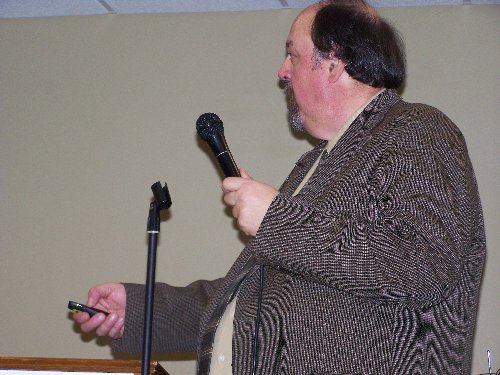
Kruse says at present consumption, the U-S uses nearly five billion bushels of corn for the production of ethanol, which equates to ten percent of the fuel industry. He encourages people to increase the amount of ethanol to be used for vehicles.
Listen to
{audio} images/stories/mp3/March 2015/Kruse ethanol2.mp3{/audio}
Kruse says farmers and farmer-owned cooperatives need to take a more aggressive role in offering the higher ethanol blends. He says he is aware of a farmer-cooperative in his region that has 17 fuel distribution sites, but only one of the 17 offers blended ethanol at more than ten percent blend. He says farmers generally oppose government sponsored subsidies, and by using higher blended ethanol fuels, he claims farmers would not have to concern themselves with farm bill programs.
Listen to
{audio} images/stories/mp3/March 2015/Kruse ethanol3.mp3{/audio}
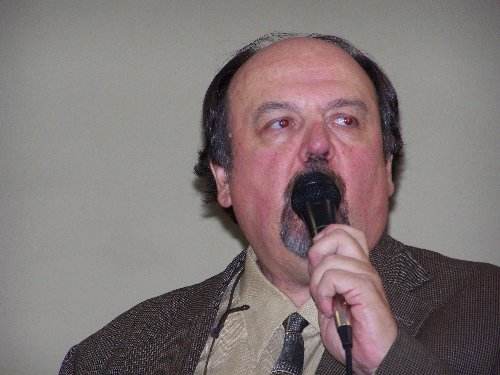
The Commodity Commentator likes to use a Texas cotton grower as his example when he asks the question “are Iowa farmers using their own product”?
Listen to
{audio} images/stories/mp3/March 2015/Kruse ethanol4.mp3{/audio}
Kruse claims he uses a 30 percent blend of ethanol for his private vehicles, and he says we need to push through what he calls the “E-10 wall”.
Listen to
{audio} images/stories/mp3/March 2015/Kruse ethanol5.mp3{/audio}











